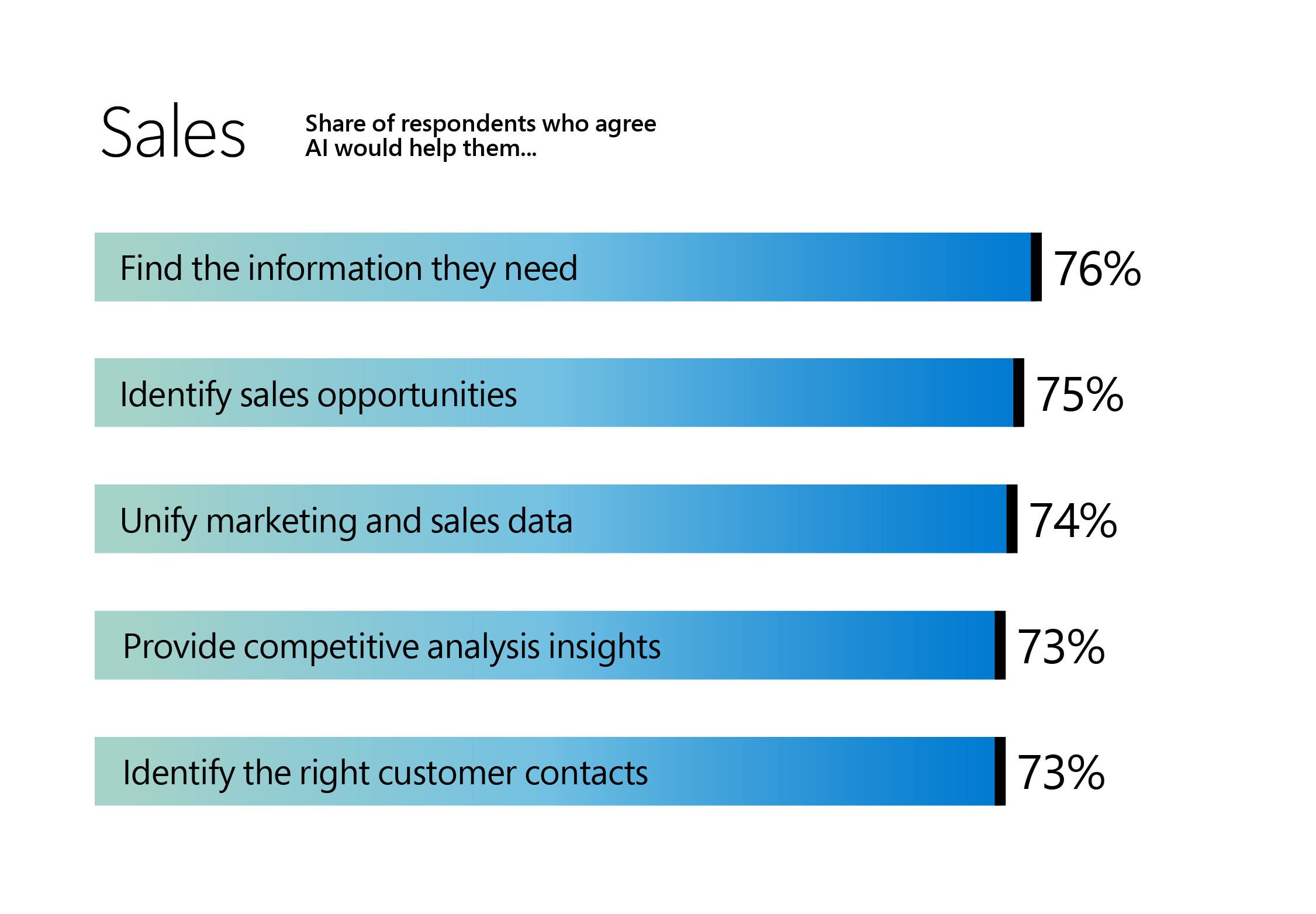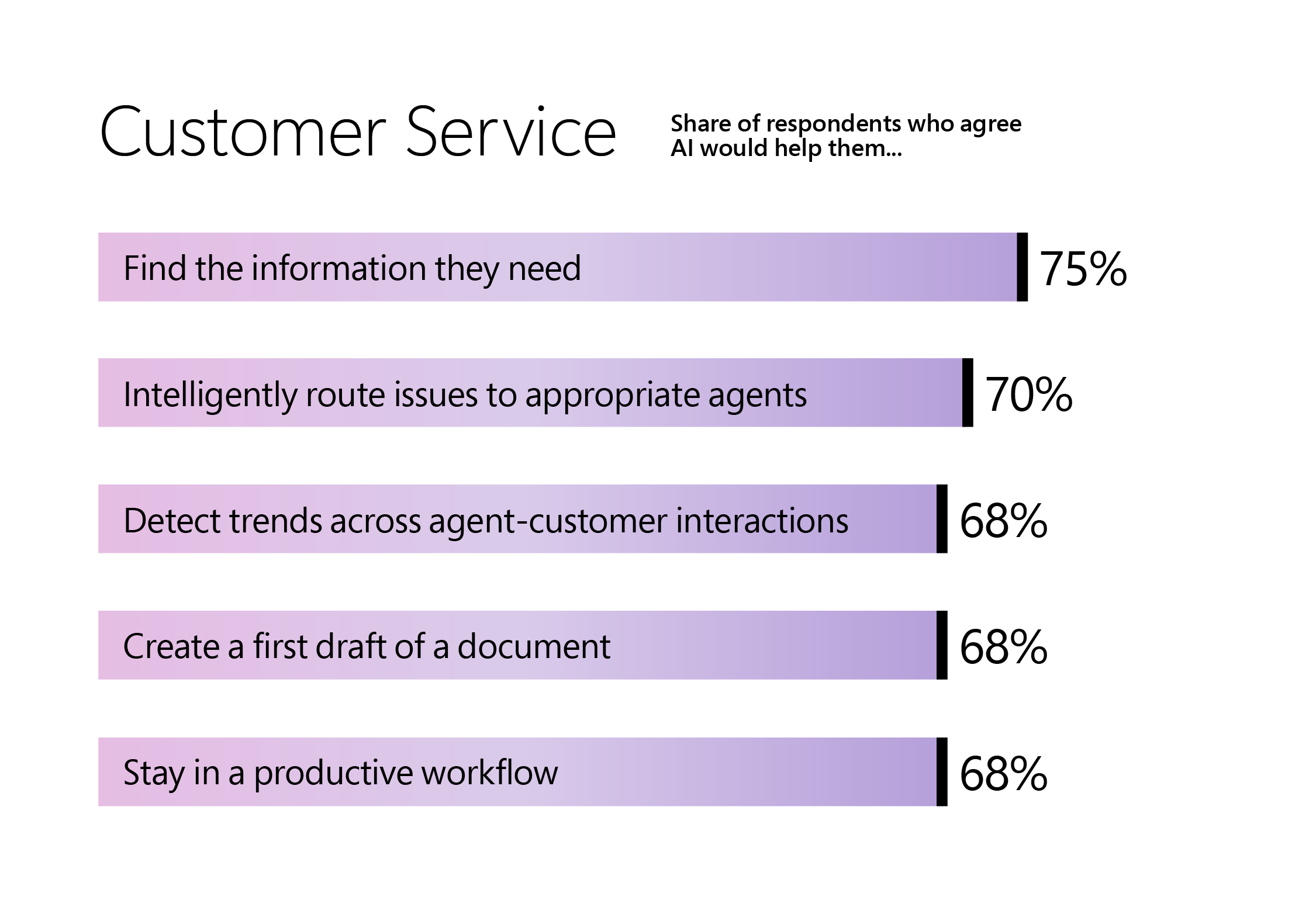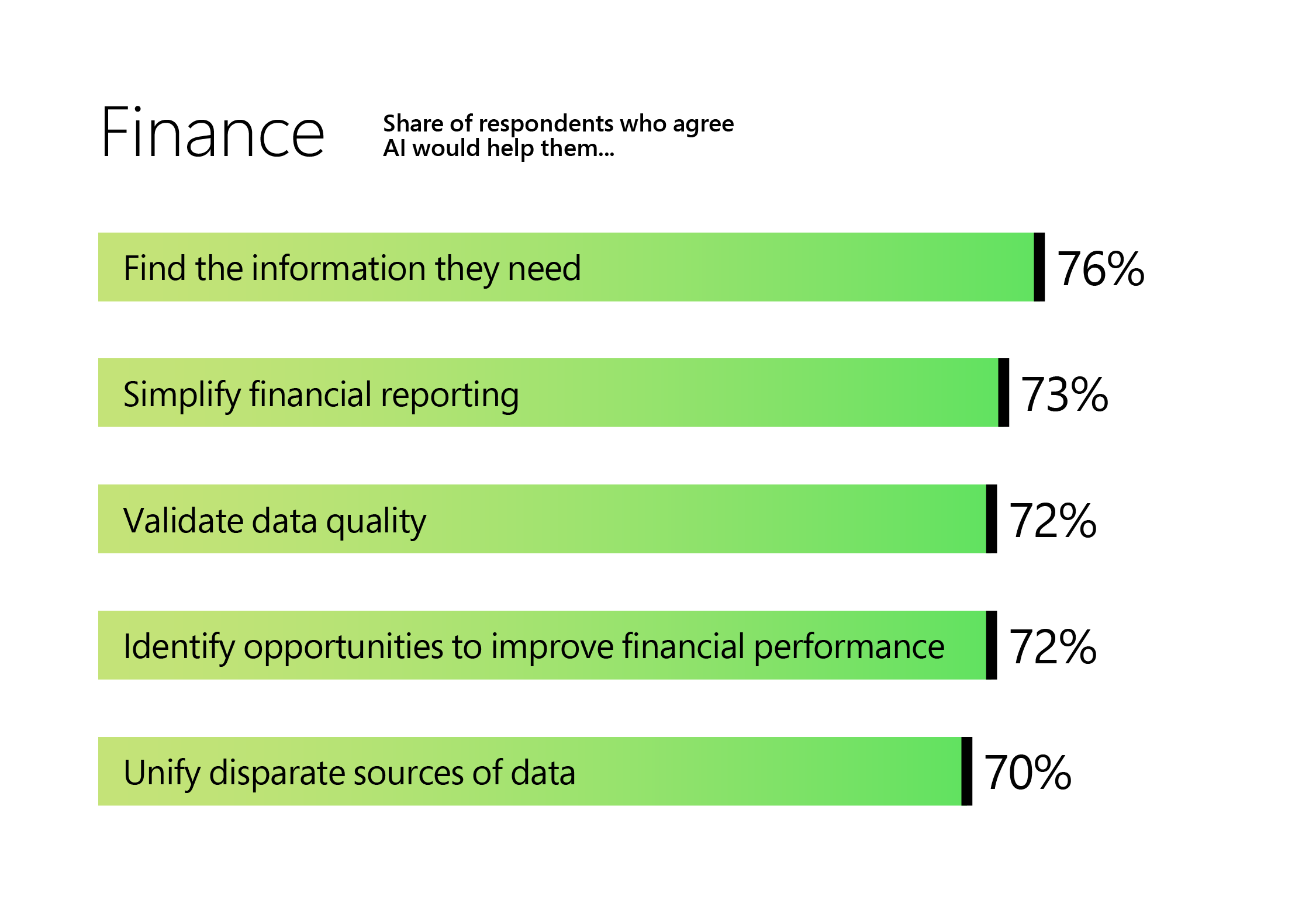Eight months ago, we introduced Copilot for Microsoft 365 to reduce digital debt and increase productivity so people can focus on the work that is uniquely human. What everyone wants to know now is: will generative AI really transform work, and how?
New data shows that the productivity gains are real. Microsoft has conducted research using a combination of surveys and experiments to deeply understand how Copilot is transforming work—learning with and alongside customers. Already, Copilot makes people more productive and creative, and saves time. Early users don’t want to go back to working without it: 77% said they don’t want to give it up.
As the adoption of generative AI in the workplace expands, the real opportunity is to not only transform personal productivity but lift the capability of the entire organisation. Copilot sets a new baseline—one where every employee gains the skills to write, design, code, analyse data, and more. And it amplifies expertise, taking work from good to exceptional.
First Look:
Across our research, here’s what stood out:
-
70% of Copilot users said they were more productive, and 68% said it improved the quality of their work.
-
Overall, users were 29% faster in a series of tasks (searching, writing, and summarizing).
-
Users were able to get caught up on a missed meeting nearly 4x faster.
-
64% of users said Copilot helps them spend less time processing email.
-
85% of users said Copilot helps them get to a good first draft faster.
-
75% of users said Copilot “saves me time by finding whatever I need in my files.”
-
77% of users said once they used Copilot, they didn’t want to give it up
Perceived Productivity gains of Copilot
Microsoft surveyed 297 users in our Copilot for Microsoft 365 Early Access Program to learn how they are using Copilot—from meetings to drafting documents. Overall, they reported productivity gains and time savings consistent with the gains developers experienced using GitHub Copilot.
Copilot makes people more productive and creative, and saves time. Here’s how it breaks down, according to early users:

We also wanted to understand how valuable Copilot is to employees. Early users told us once they’ve worked with Copilot, they don’t want to go back to working without it.
Copilot’s impact on meetings, email, information search, and writing
In addition to qualitative research, Microsoft have set out to quantify the productivity gains of Copilot through observational studies across four building blocks of knowledge work: meetings, email, searching for information, and writing. The digital debt that people feel is real. The heaviest Microsoft 365 users receive more than 250 emails a day as well as send and receive 150 chats1, and Teams meetings per person are up 3x globally since 20202. (Work Trend Index Special Report, September 2022)
With Copilot, people save time on key tasks - Quantitative findings show Copilot increasing speed on tasks like writing, summarizing a meeting, and searching for information.

Role-specific pain points and opportunities
Microsoft has found a broader opportunity for Copilot to drive organisational impact at scale across every function. They are taking a learn-it-all approach, starting with their own salespeople and customer service agents.
In a survey, Microsoft’s own sales team reported on key benefits. Here’s what they said:

Here’s how sales, customer service, and finance professionals say AI would improve their performance the most.
Sales

Customer Service

Finance

While these are early findings, over time Microsoft will expect Copilot to result in more deals closed, more customer service cases resolved, and happier customers—the hard measures that not only make work more satisfying and fulfilling but that ultimately drive the bottom line.
Source: https://www.microsoft.com/en-us/worklab/work-trend-index/copilots-earliest-users-teach-us-about-generative-ai-at-work